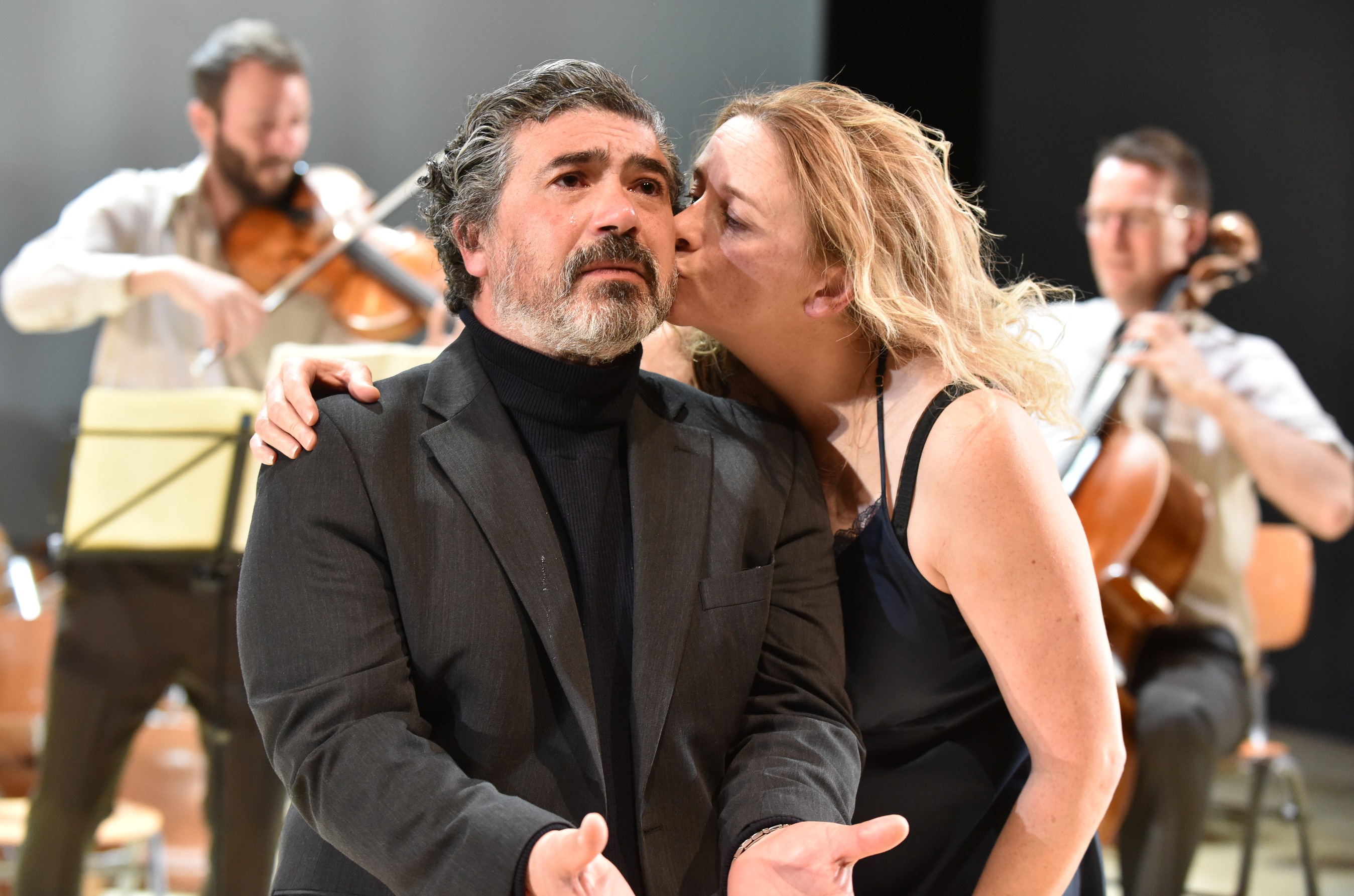The String Quartet’s Guide to Sex and Anxiety review
The String Quartet’s Guide to Sex and Anxiety is a powerful blend of drama and music which explores the links between sex and anxiety in unprecedented and subtle ways. Four actors and four musicians. Only piles of chairs and bookstands as props on stage. For 90 minutes, the focus is on the words and on the music notes at the Repertory Theatre in Birmingham.
The title itself is a provocation. It contains two words that often sound like taboos – sexuality and mental health, connected and intertwined more often than we think. One of the four actors, Cathy Tyson, admitted in a recent interview with Mark Fisher: “Every time I mention the title to people they laugh, which is great.” Laughter is certainly a way to get to the viewers, especially if the topic is so important and so relatable to the majority of society. The show itself becomes comic and hilarious at times. “When I told this person what I was doing, they started to tell me what was going on in their lives and the problems they had. That’s just from the title,” Tyson continued, highlighting the resonance that this production had with people even outside the theatre.
The title contains two words that often sound like taboos – sexuality and mental health
The show clearly aims to bring the viewers out of their comfort zone. It pushes them to face mental health problems that are too common to be ignored. The characters are not afraid to say words like ‘orgasm’ or ‘sperm’; they are not afraid to mimic gestures that are instantly associated with oral sex. But in the atmosphere created by musicians Oliver Heath, Chris Murray, Gary Pomeroy and Sara Wolstenholme, known as the Heat Quartet, everything seems filtrated through different lenses and the viewer is mesmerised and sometimes shocked. For example, I jumped out of my seat when at the end of Beethoven’s String Quartet No.11, Opus 95, the tall piles of chairs at the back of the stage crashed down to the floor. It was a voluntary sound of destruction and it had a shocking effect.
Monologues by all four actors were extremely moving, providing accounts of several experiences of coping with anxiety and sexuality in everyday life. Miltos Yerolemou, a Game of Thrones star who you will struggle to recognise on a theatre stage, opens and closes the show with two very intense pieces that are probably the most memorable. The opening monologue is from Robert Burton’s Anatomy of Melancholy, a medical text published in 1621 that focuses on the causes of melancholy, which is what we nowadays call depression. The last one – Soren Kierkegaard’s The Concept of Anxiety – is even more moving.
The show pushes the audience to face mental health problems that are too common to be ignored
Despite the acting performances being of a very high standard, the best part of the whole show was definitely the classical music played by the string quartet, in particular Ligeti’s String Quartet No.2, which represents an interesting piece of avant-garde music.
You might leave the theatre thinking ‘what has just happened?’, but this show stretches the boundaries of what is drama and what is music, blending classical music and philosophy in surprisingly beautiful and weird ways. It will enrich your consciousness of anxiety connected to sexuality.

Comments